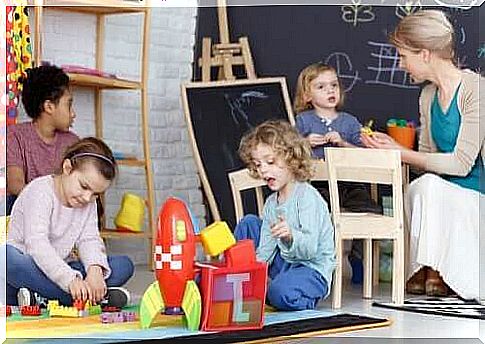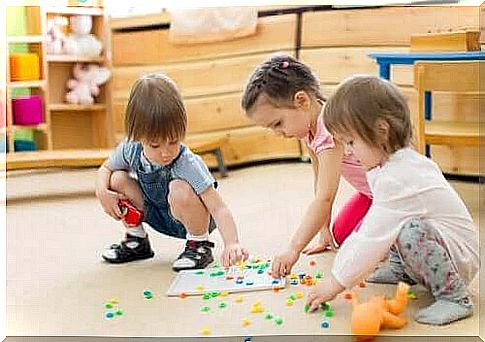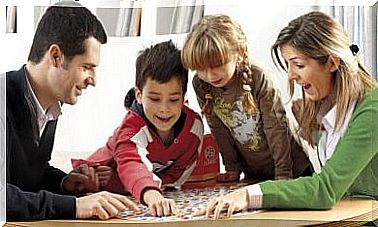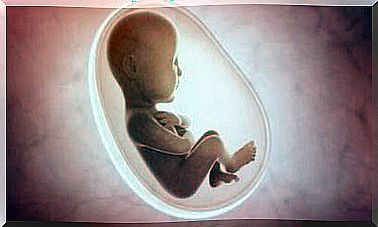Games That Develop A Child’s Skills

Games that develop a child’s skills during early childhood, and especially in early childhood education, are an important teaching method. Games develop imagination and creativity, and through them a child learns new things unnoticed, while enjoying themselves.
Games that develop a child’s skills
Games that develop a child’s skills can be classified according to where they are played. For example, games that require symbolic reasoning and logic are played indoors, while games that develop more physical and motor skills are played outdoors.
Games can also be categorized according to whether they are free, spontaneous, or guided. In free play, the child’s imagination and creativity must be unleashed; in guided play, the educator gives certain rules to the play.
Games can also be divided according to the number of participants in the game. There are games that can be played alone, such as making a puzzle, as well as games that can be played in pairs or between many children.
You play according to the abilities you develop

Games also vary depending on what skills they help to develop.
- Games that develop the senses. Identifying different sizes and compositions, listening to the sounds of nature or animals.
- Games that develop motor skills. Include movement such as jumping, running and squatting.
- Games involving assembling and building. Practicing gripping, pressing, slinging, screwing, squeezing, fixing, emptying, filling and balancing.
- Symbolic games. These games mimic real-life situations and events, and represent roles, situations, and people.
- Verbal games. Puzzles, puzzles, stories and rhymes.
- Reasoning games that require logic. Puzzles, Tetris games or chess help to lay the foundations for data processing through mathematical concepts such as serialization, classification and equivalences.
- Games that engage in spatial perception. Such games are played in large spaces with obstacles, exits, hiding places, dimensions, and distances.
- Games that engage in temporal relationships. The child learns to distinguish between seasons and times of day, as well as activities. For example, a child realizes that he goes to kindergarten in the morning and eats a snack in the afternoon.
Characteristics of games that develop skills
As you can see, there are a wide variety of games that develop a child in different ways. Although games that develop a child’s skills can be classified according to different criteria, they all have common characteristics. These include:

- Play is a way to interact with the environment and the reality it represents.
- Play is natural for a child.
- The play is spontaneous, voluntary and motivating.
- Play develops both a child’s mental and physical capacity, and promotes the development of identity and independence.
- Play is a good educational method as it promotes complex and meaningful learning. Through play, the child acquires skills, abilities, behaviors and values.
- Play is a source of joy, pleasure, entertainment and fun.
- Through play, the child is free to express his or her feelings and moods.
- Play reduces the gap between differences, is inclusive, and can have a restorative effect.
- Through play, the child learns to identify with other children and to socialize.
- Play develops imagination, fantasy, and imitation skills that help a child learn to create fictional realities.
Play and early childhood education
In early childhood education, a child is taught from birth to the age of six. This stage is often divided into two periods: from birth to three years of age and from three years of age to six years of age.
Early childhood education is critical to a child’s growth, as at this stage, play is a great way to organize a child’s teaching and learning processes and their content.
Games that develop a child’s skills reinforce the child’s gradual development in the social, emotional, cognitive, physical, and motor areas. In early childhood education, games help to develop a child, especially in the following areas:
- Language. Play enriches vocabulary, improves oral expression as well as language comprehension.
- Physicality-kinesthetics. The game helps to develop coarse and fine motor skills as well as body control.
- Mathematics and logic. Develops problem-solving skills, attentiveness and memory.
- Spatial-temporal. Practices the child’s positioning, navigation skills and visual memory.
- Musicality. Develops musicality through selectivity as well as auditory memory.
- Interaction between people. Strengthens cooperation, communication, solidarity, teamwork and conflict resolution.
- Individuality. Promotes emotion and emotion management, self-esteem, self-control, self-criticism, patience and responsibility.









